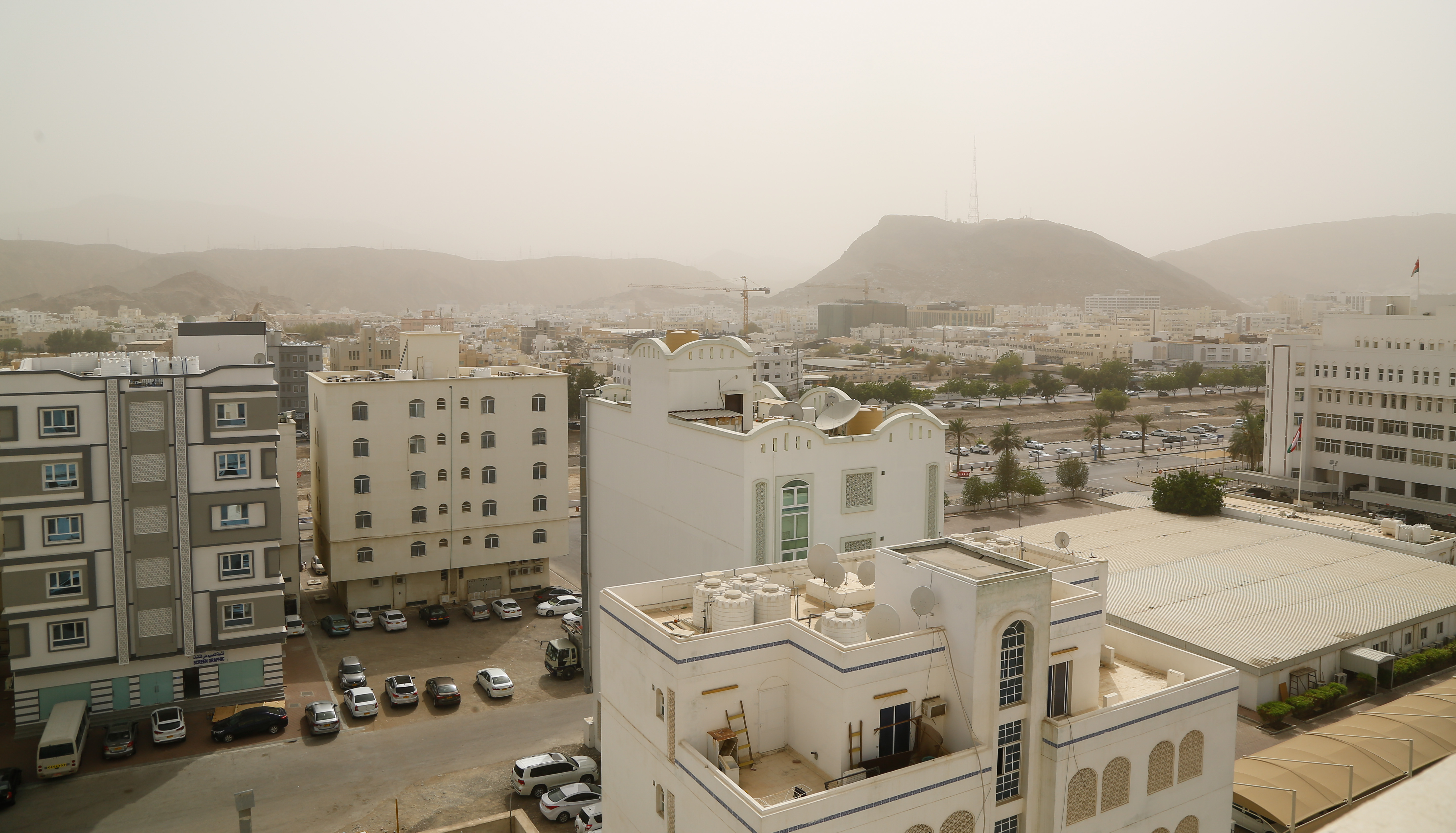
Muscat: The rise in temperatures and sandstorms are making people sick, doctors said on Tuesday. Muscat recorded the highest temperature in Oman on Sunday at 46.1 degrees Celsius, followed closely by Suwaiq at 46 degrees Celsius.
Read also: Muscat records highest temperature in Oman
The village of Saiq in Jebel Akhdar had the lowest temperature in Oman of 19.8 degrees Celsius.
“The rise in temperature in Muscat is mainly due to hot winds blowing from the deserts of Saudi Arabia,” an official from Public Authority for Civil Aviation (PACA) told Times of Oman on Monday, adding, “The temperatures will go down once the wind stops blowing.” The PACA weather forecast for May 15 said, “Mainly clear skies over most of the Sultanate with chances of blowing dust over the desert and open areas. Chance of cloud formation over Al Hajar Mountains towards afternoon. Chance of low-level clouds formation along parts of the Arabian Sea coasts.” Doctors in have advised people, especially those with respiratory conditions, to take precautions as clouds of dust are blowing across the country.
According to a family physician at Sultan Qaboos University Hospital, the most common symptoms experienced during a dust storm are irritation to the eyes and upper airways. “People who may be more vulnerable are infants, children and adolescents, the elderly, people with respiratory conditions such as asthma, bronchitis and emphysema, as well as people with heart disease and diabetes. For these people, exposure to a dust storm may trigger allergic reactions and asthma attacks, cause serious breathing-related problems, contribute to cardiovascular or heart disease,” the physician said.
“Prolonged exposure to airborne dust can lead to chronic breathing and lung problems, and possibly heart disease,” the physician added.
Poor visibility
Sandstorms are causing poor visibility, as well as triggering asthma. “So far, there hasn’t been an increase in the number of patients coming in due to the dusty weather. However, patients with bronchial asthma and asthma exacerbation are directly affected by the current weather,” said Dr. Basheer, a senior internist and diabetologist at Badr Al Samaa in Ruwi. In these cases, the expert advised people to take precautions that can minimise the adverse effects of a dust storm.
“Avoid outdoor activity. If you must go outside, spend as little time outside as possible,” he said.
He added that avoiding vigorous exercise, especially if the person suffers from asthma, diabetes or a breathing-related condition, would be helpful.
“If you are asthmatic or have a respiratory condition and you develop symptoms such as shortness of breath, coughing, wheezing, or chest pain, follow your prescribed treatment plan. If symptoms do not settle, seek medical advice,” the physician said.
Basheer advised asthmatic patients to carry inhalers with them all the time. “Stay indoors, with windows and doors closed, and in air-conditioned premises, if possible. Also, people who drive every day should keep their vehicles closed so that there is proper visibility while driving.”
PACA also took notice of the weather conditions and asked everyone to follow precautions. It advised, “People to cover their mouths and noses with a wet cloth to protect themselves from sand. Drivers who experience gusting conditions should reduce their speed immediately and follow the weather bulletin. Stay indoors as much as possible during the storm.”